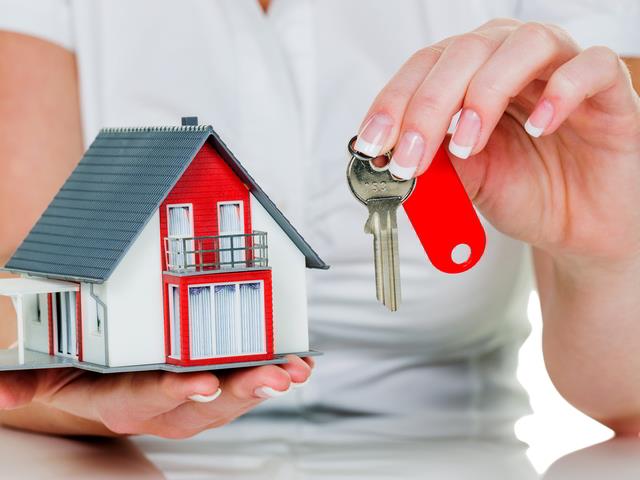What to consider when buying or renting your business premises
Category Services
Whether you plan to buy or rent is largely dependent on your personal profile and preference - but there are specific market conditions to consider right now.

Low interest rates, coupled with bank lending reaching an all-time high and a notable shift in consumer buying behaviours makes now the perfect time for buying a home.
This is according to Rhys Dyer, CEO of ooba Group who says, "Despite lockdown and a turbulent economy, there has never been a better time to own a home. In fact, people are investing more in their homes than before."
READ: Garden Route property still on high demand, despite property stock shortages
Most business owners will face this question at some point in their journey. Should you rent or buy your business premises?
"Before you start weighing up the pros and cons of renting vs buying a property, it may be useful to delve into a few questions first," says Andiswa Bata, co-head of SME at FNB. She suggests starting with the following questions:
Do you want to look in a strategic location?
What are you currently paying in rent? Would you be saving by buying the property (mindful that your current monthly rental cost may include certain items which you would have to pay for if you owned the building yourself - for example, municipal rates or even insurance to cater to eventualities like a roof leak)?
Renting means you are constrained in terms of renovations that could be done to make the premises more fit for your business purpose. If you owned the property, would you then have the opportunity to develop a space that delivers greater profitability?
READ: Gauteng's 'cheapest' rental suburbs and what you'll pay
Do you need all that space initially? Could there be an opportunity for you to become a landlord to other entrepreneurs and rent out spare space that you don't need immediately?
Do you need a tax cushion? Some property expenses including interest on loan repayments are tax-deductible.
"Answering these basic questions gives you a great starting point before you begin evaluating the choice between renting and buying," says Malusi Mthuli, KZN Provincial Head at FNB Commercial Property Finance. He unpacks some of the major considerations to include:
1. Upfront costs
While buying a business premise will carry higher upfront costs, the benefit is that your business will own a long-term asset. Remember that you will most likely need to finance the purchase, which will impact the profitability of your business and could impact on your ability to invest in new projects or equipment.
If you choose to rent, on the other hand, the upfront costs are lower but you are ultimately paying someone else's bond. You may choose to rent if your business is just starting out so that you can keep costs low while you build up your capital.
READ: Frequently forgotten additional costs of homeownership in SA
However, if the difference between the rental cost and the potential loan repayment is minimal, you may consider buying and incurring the upfront costs. Capital growth of the property will likely exceed the upfront costs and strengthen your balance sheet over time.
2. Ongoing costs
Remember that not all properties are equal. If you are buying a business premise, you need to evaluate the potential costs of maintenance and refurbishment. Considering the anticipated electricity tariff increases, it may be worthwhile to view the property with an eye to suitability for generators and/or solar panels as a source of alternative energy.
3. Is the property the right size for your business?
If you are still establishing your business or have major growth plans, it may be premature to buy a property now. You don't want to invest in buying a business premise only to have your business outgrow it within a few years.
"In such instances, it may be more prudent to rent so that you are able to relocate quickly if you need to," says Bata.
READ: Your business needs automated onboarding. Here's what you need to know
You may need more or less space your suppliers or clients may change locations or you could find a more suitable property. On the other hand, you can find business premises with potential for further development. For the sake of business continuity, buying a property ensures that your business will not be disrupted by unnecessary relocations due to lease expiry or its profitability eroded by exorbitant rental increases.
4. Location, location, location
If the property you are considering is in what you think is a winning business location, you may prefer to buy it so that you can be assured that you are not going to lose it due to unaffordable rent escalation or because the landlord wants to use the property for something else.
SEE: The most price-resilient small freehold homes enjoy increasing popularity
Talk to qualified property valuers about property values in the area. If the commercial area is booming, purchasing the business premise may pay off in the long-term while also helping you avoid pricey rental escalations.
"Finally, you could compromise by asking the landlord to include a purchase option in your rental agreement. This means you will have the first option to buy the property if the landlord ever chooses to sell. However, be sure to specify an option price or range and circumstances under which you could exercise your option to buy," advises Bata.
"You would need to consult a lawyer to give you advice should you consider a rent-to-buy opportunity due to complexities associated with these agreements."
Author: Property 24



